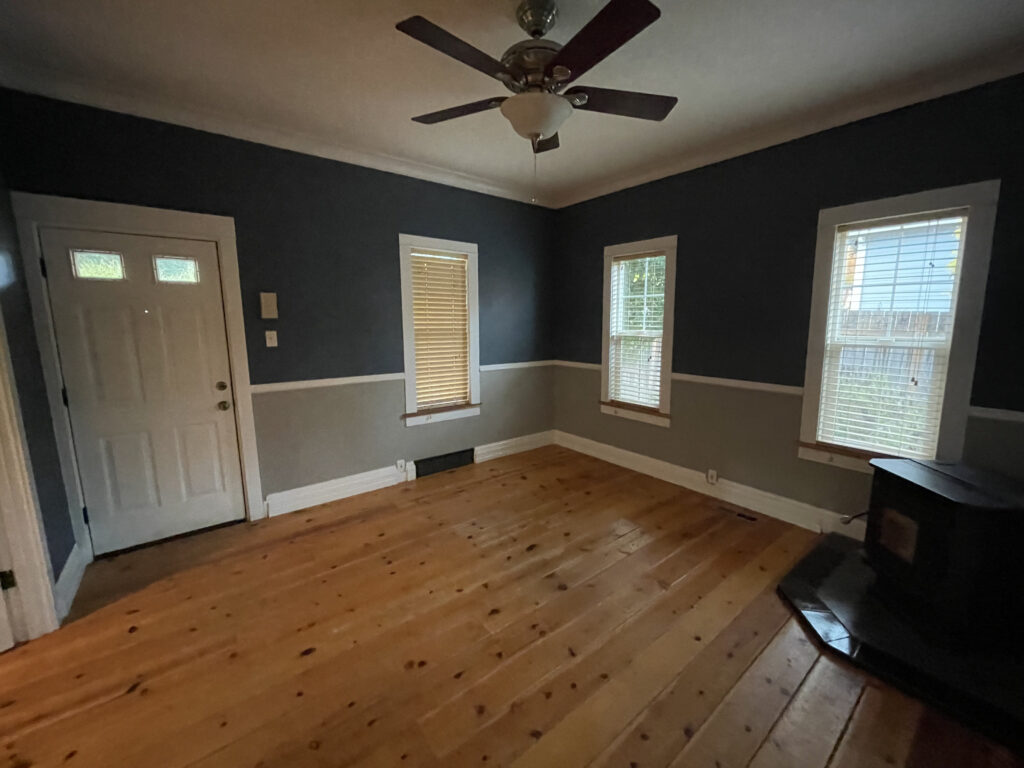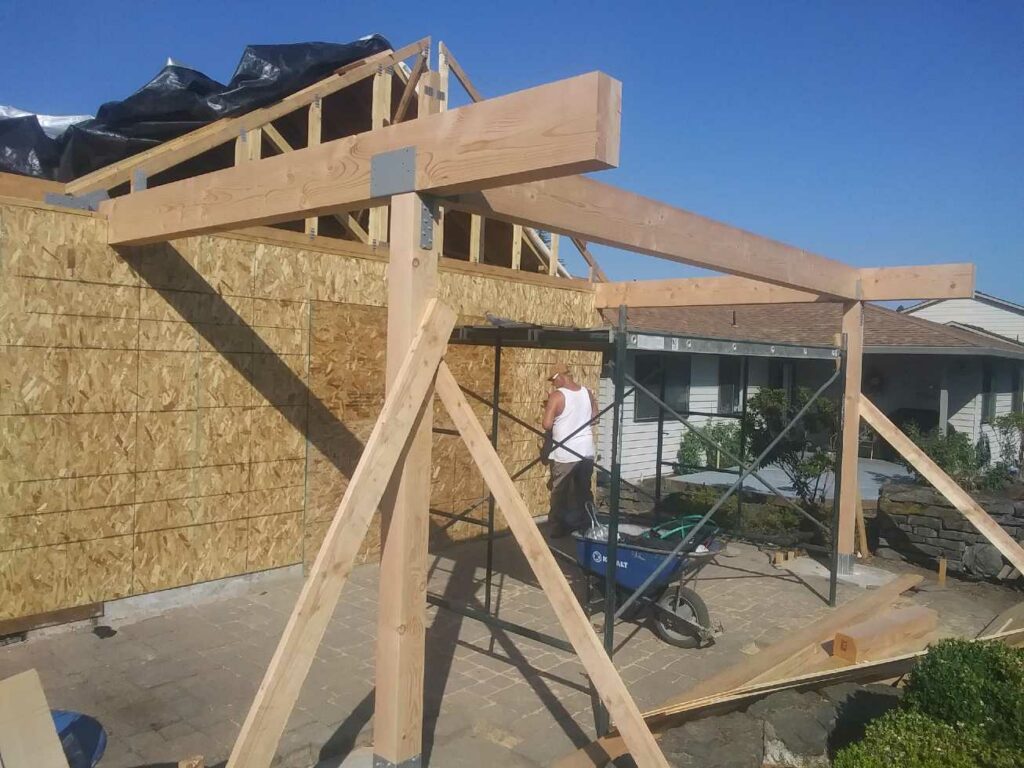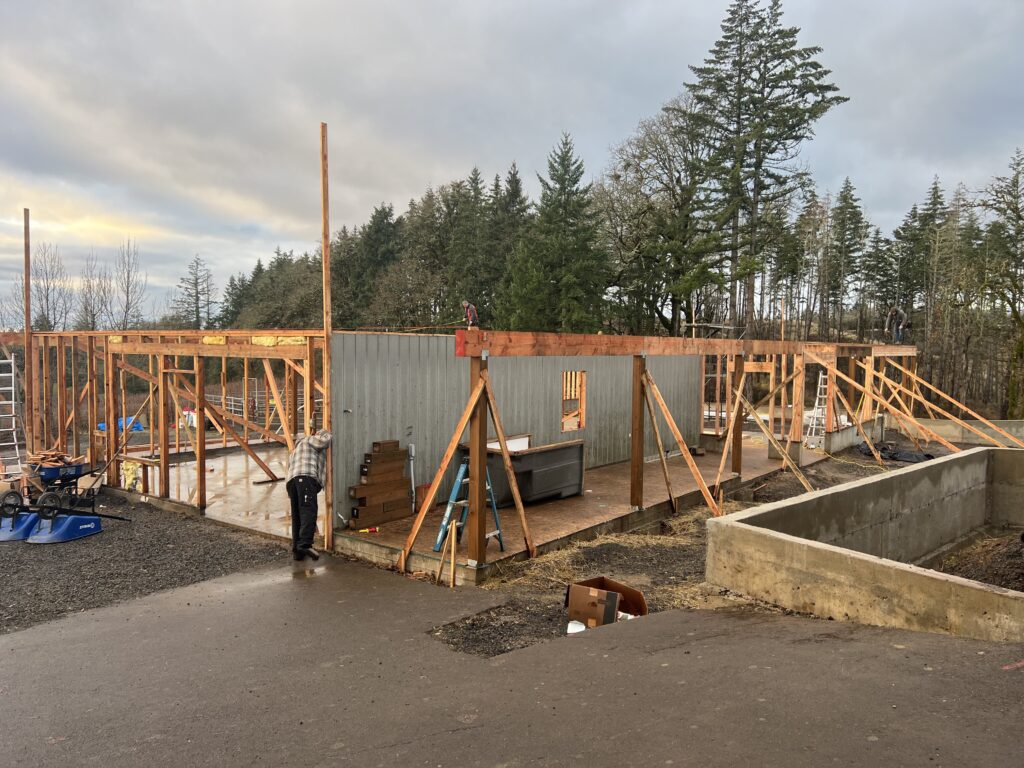
The Horrors of Self-Managing Your Construction Project
Are you thinking about building a custom home or remodeling your current one? With all the excitement and anticipation, it can be tempting to take on the project management yourself. However, self-managing a construction project can quickly turn into a nightmare, especially when customizing and bringing your vision to life.
Although there is fulfillment and satisfaction that comes with the success of your DIY project, the journey is full of challenges and unexpected setbacks. From managing the budget to overseeing subcontractors and staying on top of timelines, self-managing a construction project requires a lot of time, effort, and expertise.
Keep reading to find out why hiring a professional general contractor might be the best decision for your project and how they can help make your dream home a reality.
The Appeal of DIY Home Construction Projects.
People like the idea of doing their own home construction projects because it lets them be hands-on and save money on labor costs. It feels good to take charge of home repairs, and you can make things just the way you want. DIY projects also give a sense of accomplishment, especially when you learn new skills and see the results of your hard work.
The internet has a lot of tutorials and examples of successful DIY projects, making it seem doable for many. But it’s important to remember that DIY projects can be tricky, and mistakes might happen. If you Are not experienced, there’s a chance the results won’t be as good as you hoped.
While DIY projects are appealing, it’s essential to think about the challenges and, in some cases, get help from professionals to make sure everything goes well. Here are some guiding principles to help you make the right decision;
You don’t have the Skills.

The success of your home remodel or design project heavily relies on the skills and expertise you have. If you don’t have the skills or experience required, it’s best to hire a professional instead of risking mistakes that could cost you time and money. DIY projects are great for learning new skills, but if your project is time-sensitive or requires specific expertise, it’s better to leave it to the professionals.
You might end up with a shoddy finish, unstable structures, and errors that could bother you in the long run. Engaging in carpentry or construction work without proper qualifications or experience significantly increases the likelihood of a subpar and potentially unsafe outcome.
You don’t have the tools.
DIY projects often require specialized tools and equipment that can be expensive to purchase. If you only plan on using the tools for one project, it may not be worth the investment. In this case, hiring a professional who already has the necessary tools will save you both time and money.
Quality of work.

The quality of work in a DIY construction project often depends on the skills and experience of the person undertaking the task. Without proper knowledge and expertise, there’s a risk of producing substandard results. DIY projects may lack the precision and finesse that professionals bring to the table.
Common issues include uneven surfaces, poor structural stability, and mistakes that may impact the overall functionality and aesthetics of the construction.
While DIY efforts can be fulfilling, achieving a high level of quality in construction typically requires the expertise of trained professionals who understand the intricacies of the work involved.
It can be expensive.

Opting for a DIY construction approach has its own set of challenges and costs, particularly depending on the scale of the project. The larger the undertaking, the more significant the expenses, especially if it involves extensive tools and materials.
One notable issue with DIY projects is the potential for mistakes, particularly if you lack experience in home improvements like carpentry. Errors in the process may necessitate purchasing additional materials to rectify the issues and make up for any losses incurred during the project.
These unforeseen costs should be considered when evaluating the overall expense of a do-it-yourself endeavor.
Projects can get risky.

Engaging in a DIY construction project comes with its share of risks, and safety concerns are among the disadvantages. Building a house exposes individuals to potential hazards, with accidents being a significant risk. Falls, in particular, are common accidents associated with DIY projects.
If your DIY project involves tools or materials that pose risks even when not in use, it’s advisable to reconsider tackling it yourself if you have limited experience in renovations or home improvement.
Prioritizing safety and recognizing potential injury is essential when deciding whether to proceed with a DIY endeavor.
It takes a lot of time.

DIY construction projects are ideal when you have ample free time, especially if they involve processes spanning several days or weeks. As mentioned earlier, undertaking such projects during vacations or holidays is often optimal. But what if your schedule is tight?
The feasibility of a DIY home project when you are busy depends on the nature of the task. Some projects may demand a slow or meticulous approach, requiring your full attention.
Alternatively, starting without considering your schedule might lead to abandonment, resulting in wasted costs. In such cases, it might be prudent to delegate the project to those you live with or consider hiring a remodeling company to handle the job.
It could affect your home warranty insurance.
Choosing to do DIY projects can have an impact on your access to Home Warranty Insurance, which provides protection for homeowners against building work. If you act as your own contractor, you won’t be able to benefit from this insurance, and you’ll be responsible for covering the costs of any defects.
On the flip side, hiring a general contractor ensures that your property is covered by insurance for incomplete or defective work. Additionally, the contractor’s insurance is likely to cover any damages that may occur during the construction process.
This can provide a layer of financial protection and peace of mind when undertaking home construction projects.
The difference between hiring a professional Vs. DIY.

Embarking on a home construction project is a significant investment, and there might be moments in the planning phase when you consider doing it yourself. Home construction shows and social media portray it as straightforward, making you believe it’s manageable. However, for the majority of this projects, opting for a contractor is a wiser choice and can, in fact, lead to long-term cost savings.
Saves you time and money.
Enlisting a professional for your construction project allows you to avoid the pitfalls of DIY mistakes, such as project delays, escalating costs, and subpar workmanship. The expertise of a general contractor translates into effective cost management and time efficiency, representing a genuine investment in peace of mind and ensuring a superior outcome for your construction project.
| DIY Pitfall | Time Lost | Money Wasted | Professional’s Edge |
|---|---|---|---|
| Learning Curve | Weeks to months | Potential double spend on fixes | Immediate expertise and efficiency |
| Permit Errors | Legal setbacks | Fines and redo costs | Knowledge of regulations, swift approval |
| Resource Mismanagement | Delays from inadequate planning | Unnecessary material or labor expenses | Optimized resource allocation |
Contractors understand how to manage your project.
Remember, a professional brings a wealth of knowledge to project management. They have years of refining a blend of leadership, collaboration, and skillful negotiation. They pilot your project with precision, employing the right tools to streamline workflow and tackle complexities with ease.
Skills to handle your home construction project.
Starting a custom home building or renovation project? You will need the expertise of a professional general contractor by your side. With a well-rounded skill set, including refined carpentry, plumbing, and electrical work, they ensure that every aspect of your project in Yamhill County meets the highest standards of excellence and code compliance.
| Construction Skill | DIY Effort | Professional Execution |
|---|---|---|
| Carpentry | Basic assembly prone to errors | Expert craftsmanship with lasting quality |
| Plumbing | Risk of leaks and water damage | Leak-proof installations and seamless function |
| Electrical Work | Potential safety hazards | Safe, reliable, and up-to-code electrical systems |
Do it once, do it right.
Bring in a professional and hit the mark from the get-go. A reliable general contractor adds precision and durability to your venture, sparing you from the repetitive fixes and headaches often associated with DIY efforts.
Your home deserves the resilience and expertise that only experienced hands can offer, ensuring every detail is constructed to withstand the test of time. Do it right the first time, and witness your McMinnville home enduring the passage of time.
Contact us for trusted and high-quality service.

Starting a DIY construction project in McMinnville or nearby areas in Yamhill County? You might find yourself in a maze of unexpected challenges. To steer clear of the difficulties of managing your own projects, turn to All Building Construction for expert guidance that ensures peace of mind and professional outcomes.
Don’t let the appeal of self-construction ensnare you in a web of costly errors and constant headaches. Our skilled team skillfully navigates the intricacies of custom home building and renovation, turning your vision into reality.
As a leading general contractor in Yamhill County, we ensure your project meets expectations with minimal stress. With a great attention to detail and a commitment to excellence, we transform your construction from mere drawings and designs to works of art. Give us a call today and leave the uncertainties of DIY behind.
Frequently Ask Questions
Can DIY projects lead to long-term structural issues in a home?
Yes, DIY projects, particularly those involving structural changes, may pose risks of long-term issues. Lack of expertise and improper execution could compromise the integrity of the structure, potentially leading to problems like foundational issues and structural instability over time.
What are the pitfalls of managing a DIY construction project?
Self-managing a construction project can present several pitfalls. One common issue is misjudging the complexities involved in tasks such as plumbing, electrical work, or structural modifications.
There’s also the risk of underestimating the overall necessity of proper project management, which can lead to delays, oversights, and an overall suboptimal outcome. Without the right tools and expertise, you might encounter more challenges, making the DIY route potentially more difficult and costly than initially thought.
What emotional benefits might be sacrificed when self-managing a construction project?
DIY projects often come with emotional benefits, such as the satisfaction of learning new skills and gaining confidence through hands-on work.
However, self-managing a construction project can sacrifice these benefits due to the added stress, challenges, and potential mistakes that come with handling the entire project independently.
The emotional fulfillment that often accompanies DIY endeavors may be overshadowed by the complexities and uncertainties of managing a construction project without professional guidance.
Are there common horror stories associated with self-managing construction projects?
Yes, common horror stories linked to self-managing construction projects include budget overruns, incomplete projects, and poor work quality.
Insufficient knowledge and experience in managing construction projects often result in costly mistakes, leading to unexpected expenses and extended timelines.
These stories emphasize the importance of considering professional assistance to avoid the pitfalls associated with self-managing construction projects.
How does a professional contractor handle unforeseen challenges in a project?
Professional contractors leverage their experience to adeptly handle unforeseen challenges in a project. Their problem-solving skills, industry knowledge, and established relationships with suppliers allow them to navigate unexpected complications with efficiency, minimizing disruptions to the project timeline.

